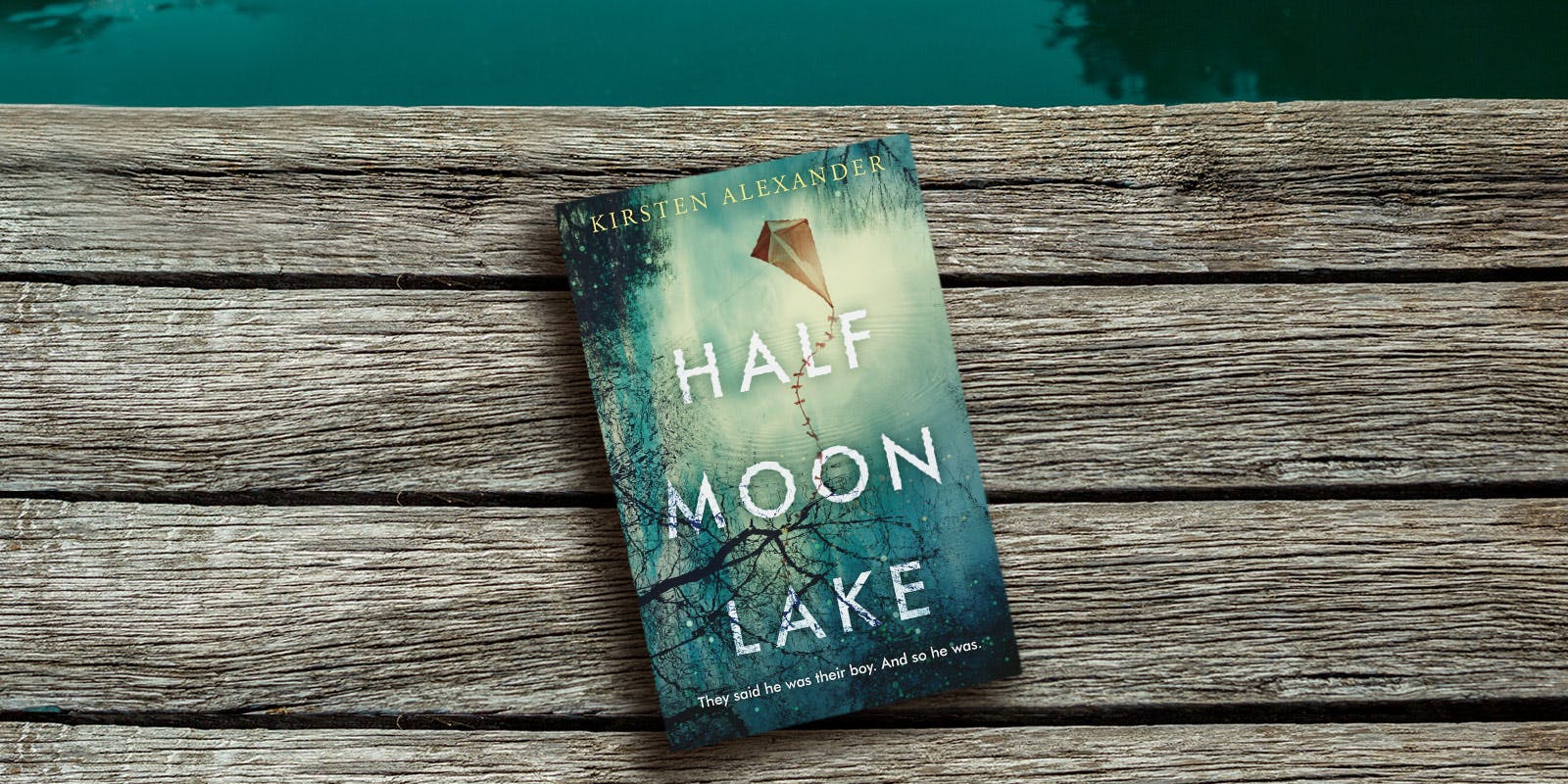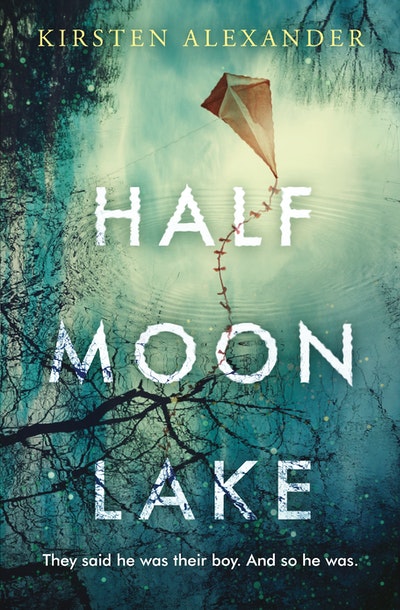Author Kirsten Alexander on the podcast that sparked the idea for her debut novel.
Half Moon Lake is a novel, but it was inspired by a true story I encountered on a podcast. The Ghost of Bobby Dunbar originally aired as an episode of NPR’s This American Life in 2008. I didn’t hear it when it first aired, but the episode was popular enough that they rebroadcast it in 2012. That was my introduction to the story of the four-year-old lost-then-found Louisiana boy who was claimed by two mothers in the mid-1910s. The story is fascinating, but it raised questions for me: how could a woman not recognise her own son? Why didn’t the boy tell them who he was? The podcast also delved into how the family’s descendants were dealing with the discovery that, thanks to a DNA test in 2004, their ancestors had essentially kidnapped another woman’s child, which raised both ethical and personal identity issues.
The NPR podcast creators Tal McThenia and Margaret Dunbar Cutright wrote a nonfiction book on the Bobby Dunbar story called A Case for Solomon. While I enjoyed it, it left me wondering and unsatisfied. That’s no criticism of the book; it’s just that my head wanted to work with the gaps in the story to imagine what might happen if I put some extra characters in the mix, moved the story a little closer to the start of the First World War, and talked about some of the other issues that were important at that time. What I really wanted to do was combine fictional versions of the past and present stories – the vanishing, the rediscovery, a town divided over which mother was telling the truth, and the modern-day discovery of what had been wilfully lost over the years…
I tried, and I failed. Annoyingly, everyone agreed that I’d failed. My agent didn’t think it was working, a freelance editor didn’t think it was working, and then a savvy American friend-of-a-friend told me I had two books on my hands and that I should begin by telling the historic tale on its own. (Please note I showed it to these people because I thought I had a finished manuscript on my hand, ready to pitch to editors. The hubris…) So, I took my braided 80,000-word manuscript and pulled it apart into two separate documents, strand by strand. I put the modern story (about 40,000 words long and smattered with song lyrics, photos, obscure pithy quotes) to one side and set about telling the historical story from the beginning, reading and researching along the way, reimagining the characters and the place, until it felt like its own novel. I hadn’t set out to write a purely historical book but the American reader’s advice was right: this was its own story.
I made a conscious decision not to travel to Louisiana. Half Moon Lake begins in 1913, and I worried that seeing modern-day Opelousas, New Orleans and surrounds would obscure the historical image I held so clearly in my head.
Instead, I read widely about topics from the Civil War to the bird life of Louisiana, Jim Crow laws to women’s suffrage, the early years of the First World War to Southern music and cuisine.
I read fiction from the time: Edith Wharton, D.H. Lawrence, Jack London, Beatrix Potter and Mark Twain. I also read plenty of nonfiction: Scouting for Boys, John Muir’s nature tracts, and books about the era such as Florian Illies’ 1913: The Year Before the Storm. I read old newspapers and magazines that I found online, too. (I cannot recommend this enough, just for fun.)
I watched more silent films than I needed to, and revisited Gone With the Wind with freshly critical eyes.
And though I know the internet can be terrible, I can’t imagine how much more difficult it would have been to research what people wore and drove in 1913 America, how much they earned, and what the laws of the day were without it. I spent hours learning about things that amounted to no more than a single line in the book, and I don’t regret a minute of it. (Google a list of the things that were invented in the 1910s – it’s mind-blowing. Here’s a sample: the zipper, crossword puzzles, the parachute, traffic lights.)
After a million rewrites, Half Moon Lake found a home with my wonderful publisher and editor at Penguin Random House Australia, which is every version of my dream come true.
I didn’t give up on the modern story, by the way. There’s something too interesting in the idea of discovering an entirely different version of one’s family history and having to consider what it means for the here-and-now. Are we responsible for the actions of our forebears? Do their choices change who we are? To my mind, the human experience makes no sense without exploring the stories from our past, imagining those from our future, and being clear-eyed and honest about our present.













